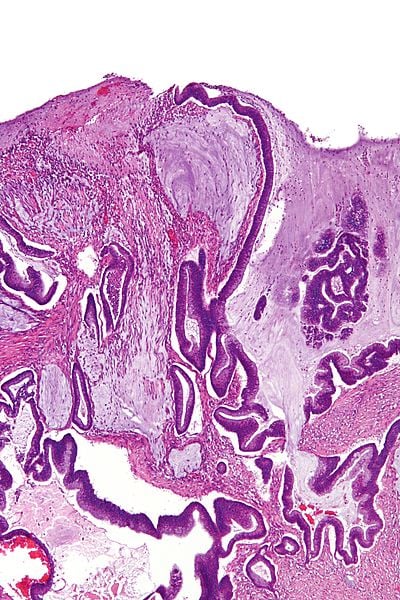 According to a team of researchers at the University of Pennsylvania, one specific contributor to colon cancer may be a protein called MSI2.
According to a team of researchers at the University of Pennsylvania, one specific contributor to colon cancer may be a protein called MSI2.
Although scientists are constantly making advances in understanding the genetic mutations that result in colon cancer, it is rapidly gaining steam as a leading cause of cancer-related deaths worldwide. In fact, deaths from colon cancer have increased from 500,000 deaths in 1990 to 700,000 in 2010.
A research team led by Christopher Lengner, an assistant professor in the Department of Animal Biology in Penn’s School of Veterinary Medicine, has targeted the MS12 protein as a potential culprit in colon cancer, making it a likely candidate for the development of treatment options. Further studies of MSI2 may also help explain how the disease can return after lying dormant for years.
According to the researchers, MSI2 is not directly mutated in cancer but instead is expressed in tumors and binds to RNA, leading to uncontrolled cellular growth.
Lengner’s research has long focused on how stem cells are able to differentiate into a variety of cell types, an ability known as stem cell potency. His lab’s work dovetails with cancer research in that it is believed that a population of so-called cancer stem cells is responsible for sustaining cancer in the body once it is established, just as normal stem cells are responsible for continually renewing and sustaining our healthy cells.
According to a university press release, the contribution of MSI2 to colon cancer has gone unconfirmed by traditional research techniques prior to this study.
“The dogma for the past 15 years has been that colorectal cancer is initiated by the loss of APC that triggers activation of β-catenin, in turn driving uncontrolled stem cell division,” Lengner said. “But there’s been some evidence recently that suggests that, while β-catenin is a critical oncogene downstream of APC loss, it isn’t the only way losing APC leads to tumor formation. Based on our results, we think that activation of MSI2 downstream of APC loss drives this metabolic activation of stem cells and blocks stem cell differentiation.”
The study confirmed that MSI2 promotes the activation of cellular metabolism through a protein complex called mTORC1. Conversely, by blocking MSI2 activity the team was able to inhibit cancer growth.
